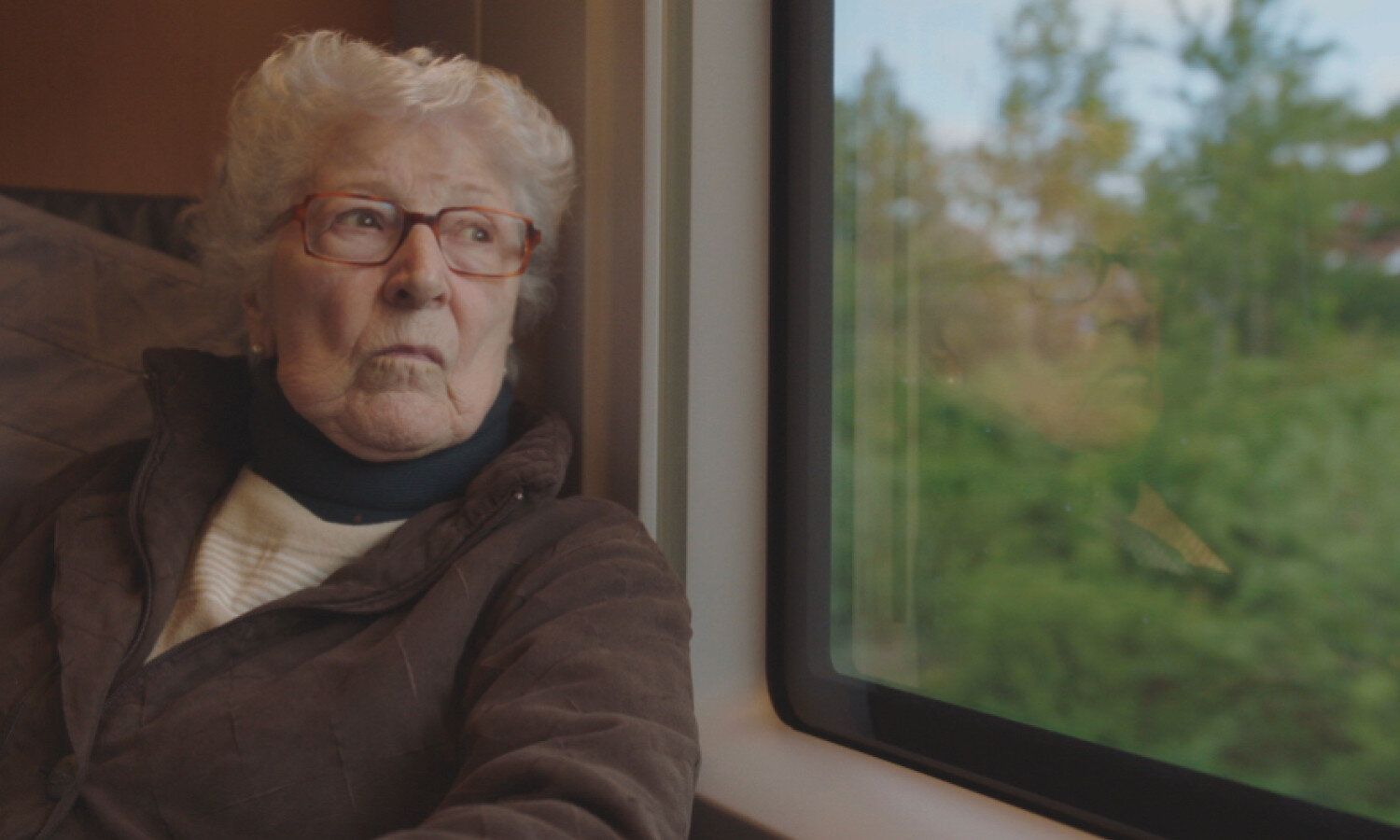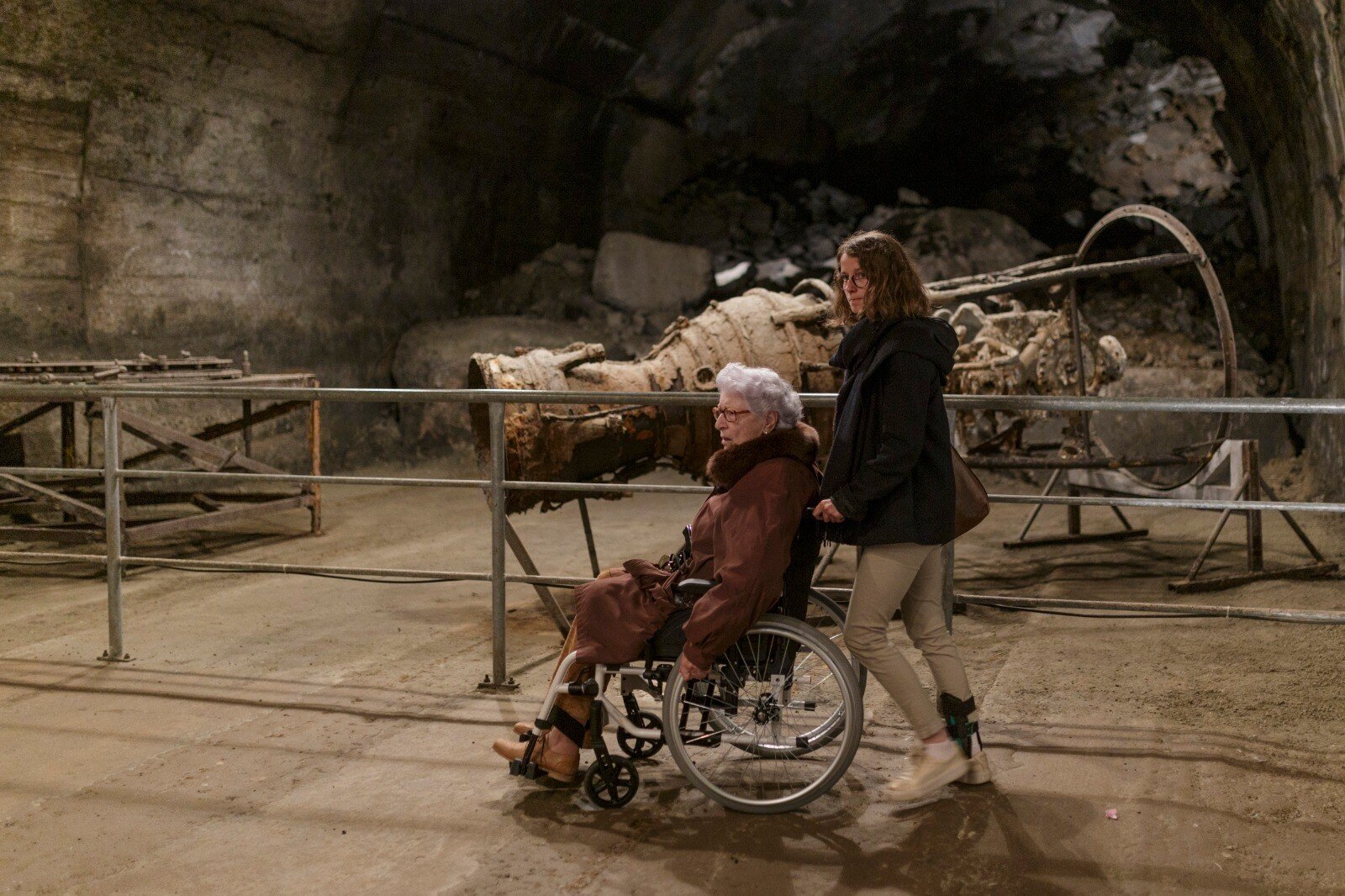Colette
Scheduled in Block 2
Production Details:
24:00
USA/France
Directed by Anthony Giacchino
Produced by Alice Doyard, Annie Bush, and Aaron Matthews
Director of Photography: Rose Bush
Synopsis:
Ninety-year-old Colette Marin-Catherine is one of the last surviving members of the French Resistance. As a young girl, she belonged to a family of Resistance fighters that included her 17-year-old brother Jean-Pierre. The last time Colette saw Jean-Pierre was in 1943, when he was arrested by the Gestapo and “disappeared” into the Nazi concentration camp system, never to be seen by his family again. The family was inwardly shattered, but outwardly stoic. No tears. Never permitted.
For the past 74-years, Colette has never allowed herself to put one foot in Germany. But that’s all about to change when a young history student named Lucie enters her life. Lucie is researching the camp in Germany where Jean-Pierre died. Tracing the story of Jean-Pierre is, in fact, her special assignment. The film follows Colette as she travels with Lucie to what remains of the forced labor camp near Nordhausen, Germany.
It’s a journey of discovery on many levels, but the film’s greatest revelation is Colette herself, who at 90, is finally ready to let go of what she has, for over seven decades, held so tightly inside. Lucie’s youth and genuine concern has pierced the armor. The ultimate discovery of the film is Colette’s to make. That some wounds can only be healed if we allow them to be re-opened.
Director Bio:
Anthony Giacchino is an Emmy Award winning filmmaker living in NYC. His last doc, THE GIANT'S DREAM (Warner Bros. Pictures), tells the story behind Academy Award winning director Brad Bird's first feature film, THE IRON GIANT. Anthony is currently working on an untitled World War II project set for the 75th anniversary of the end of the war.
Anthony's first feature-length documentary, “The Camden 28,” aired on the PBS series POV, and was nominated for a Writers Guild of America award for Outstanding Achievement in writing for the screen. The New York Times called the film "a brilliant merger of political outrage and filmmaking chops and the most suspenseful movie in theaters right now."
In addition to his documentary film work, Anthony guest-curated the New York City Police Museum's 2009 centennial exhibit on JOE PETROSINO, the legendary NYPD detective whose 1909 murder in Palermo made him the force's first and only member to be killed overseas in the line of duty. Anthony also marked another centennial in March 2011 with his Cooper Union installation, LETTERS TO ANOTHER CENTURY - THE TRIANGLE FIRE LETTER PROJECT.
Since 2007, Anthony has produced, written & directed 6 Specials for HISTORY, with topics covering the Kennedy Assassination, Presidential Scandals, Pearl Harbor, the Science of Star Trek and the history of the Atlantic Slave Trade. He won the network a Primetime Emmy Award with his short VOD Series “Great Moments From the Campaign Trail.”
For Bad Robot and Paramount Pictures, Anthony produced and directed the Behind the Scenes Special Features for MISSION:IMPOSSIBLE - GHOST PROTOCOL. And for Walt Disney Pictures, he worked on the bonus features for the feature film, TOMORROWLAND.
Anthony’s last name means “little jacket” and he is a member of the Writers Guild of America, West.
Director Statement:
In 2018 I was directing a series of short documentaries with surviving veterans of World War II — bringing them back to the scenes of battle that had most deeply affected them. We were shooting in Europe. Our production team was international. I wondered: why were we only focussing on American vets? The war hadn’t even been fought in America. It had been fought–– at least the western half of it had–– in Europe. By people whose countries were under attack, even occupied. What of their experiences? For that matter, why were we only featuring the stories of men?
While filming in Normandy, I heard about 90-year-old Colette Marin-Catherine, one of the few surviving fighters in the French Resistance. Colette’s 17-year-old brother, Jean-Pierre, had also been in the Resistance and had died a gruesome death in a German forced labor camp. Although her profile was outside the range of the series I was doing, we still met. Colette was formidable. To tell the truth, she terrified me. I learned that only one percent of the French population had actively resisted the Nazi occupation. Colette— as a young girl, no less— was one of them.
We wanted to make a film with her. The German camp where her brother had died was still standing. But could we convince her to travel there? It would be a hard sell. She had spent
the last 70-plus years trying to forget what had happened there. Such a trip would be, as she called it, “morbid tourism.” What possible good could come of it?
The person who ultimately persuaded Colette, was a young research student named Lucie, who was documenting the histories of the prisoners from Jean-Pierre’s camp. Colette and Lucie met, and really connected. A new generation wanted the truth, needed the truth of that time. Wasn’t that reason enough to visit the camp with Lucie?
Filming with Colette was an amazing experience for all of us. For Colette, I think it was even life-changing. She’d allowed herself to face down the painful ghosts of her past. It’s an honor to think that our film played a part in her finally making that journey.










